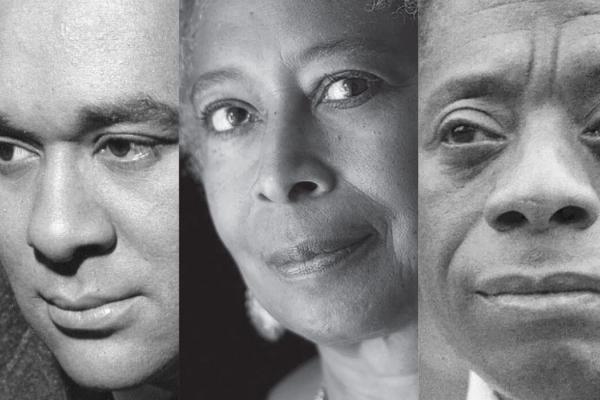TO UNDERSTAND THE TRUMP PHENOMENON, which is at least in large part about race, I decided to read. Instead of reading more white people wrestling with what has gone wrong with white people, I, a white man, focused on African-American sources, mainly novels.
This move was first suggested to me by womanist ethicist Katie Cannon, who read the novelist Zora Neale Hurston as a primary source. I, too, began with Hurston, and then couldn’t stop. For two years, I have been reading classic novels by African-American authors, seeking an answer to these questions: How do black characters experience white people? How do they describe white Christian people’s morality and religion? The answers are clear—and devastating.
Three primary themes emerge:moral debasement, religious powerlessness, and perceptual blindness. Let me say a few words about each, with examples.
Moral debasement
These stories clearly reveal the moral damage white racism does to white racists. Attempting to distill specific elements, I see greed, pride, slander, arbitrary use of power, unchecked anger and violence, and alienation from human relationship.
Greed. These stories understand that white racism is deeply connected to greed. White people act based on our economic self-interest. We created this entire racist system to benefit ourselves, and this is pivotal to understanding white racism in all periods of American history. For example, in Alice Walker’s The Color Purple, a character explains, “I know how they is. The key to all of ’em is money. The trouble with our people is as soon as they got out of slavery they didn’t want to give the white man nothing else. But the fact is, you got to give ’em something. Either your money, your land, your woman, or your ass.”
Or as Richard Wright put it in Native Son, “We live here and they live there. We black and they white. They got things and we ain’t. They do things and we can’t.”
Pride. Racism is in large part about pride, an assumption of superiority. In these stories, white people assume that we are superior to black people in all meaningful ways. The stories offer glimpses of that prideful sense of superiority, and of those wounded by it.
“Ain’t no way to read the bible and not think God white, she say,” Walker writes in The Color Purple. “Then she sigh. When I found out I thought God was white, and a man, I lost interest. You mad cause he don’t seem to listen to your prayers. Humph! Do the mayor listen to anything colored say? ... I know white people never listen to colored, period. If they do, they only listen long enough to be able to tell you what to do.”
Slander. White people routinely slander the character of black people. We create—and continually re-create—a degraded moral image of black people and act accordingly. White people “go out of their way sometimes to say bad things about colored folks, putting it out that all of us are thieves and liars, or else diseased,” Langston Hughes wrote in The Ways of White Folks. “No wonder it’s hard for a black man to get a good job with that kind of false propaganda going around.”
Arbitrary use of power. The stories suggest that white people are capricious and unpredictable in how we use our power over black people. No force can constrain us, while state power supports us. Such absolute, or near absolute, power is always morally corrupting. Octavia E. Butler, in her novel Kindred, wrote, “His father [the slavemaster] wasn’t the monster he could have been with the power he held over his slaves. He wasn’t a monster at all. Just an ordinary man who sometimes did the monstrous things his society said were legal and proper.”
Unchecked anger and violence. White people created a slave system of unspeakable violence and settled into the practice of anger and violence against black people, even long after slavery ended. Often seeming to be on a hair-trigger, in local situations white people routinely resort to violence.
In a painful summary in Beloved, Toni Morrison wrote, “Eighteen seventy-four and whitefolks were still on the loose. Whole towns wiped clean of Negroes; eighty-seven lynchings in one year alone in Kentucky; four colored schools burned to the ground; grown men whipped like children; children whipped like adults; black women raped ...; property taken, necks broken.”
And James Baldwin, in a searing passage from Go Tell It on the Mountain, wrote, “There seemed no door, anywhere, behind which blood did not call out, unceasingly, for blood; no woman ... who had not seen her father, her brother, her lover, or her son cut down without mercy ... no man, preaching, or cursing ... who had not been made to bend his head and drink white men’s muddy water; no man whose manhood had not been, at the root, sickened.”
Alienation. The stories depict times when white people seek normal, healthy human relationships with black people, or seem to seek it. But we can’t quite get there because we cannot release our desire for superiority.
Meanwhile, black people have no particular reason to trust white people, and thus real human communion is tragically out of reach.
“Rufus [the slave master] had done exactly what I had said he would do: Gotten possession of the [slave] woman without having to bother with her husband [whom he had killed],” observes a character in Kindred. “Now, somehow, Alice would have to accept not only the loss of her husband, but her own enslavement. Rufus had caused her trouble, and now he had been rewarded for it. It made no sense. No matter how kindly he treated her now that he had destroyed her, it made no sense.”
White religion as powerless
In these stories, white people’s religion is always supposedly Christianity. But insightful characters wonder over this religion, which they see is powerless to correct white people’s racist behavior. Its main power is the ability to underwrite white hegemony with an all-powerful white God. It also has the power to distract and anesthetize the white Christian conscience. Like all the idols described in the Bible, white religion is most powerful in its ability to lead people away from the true God.
“Show me one white man who can look at a colored man without saying to himself, I see a colored man,” Dorothy West wrote in The Wedding. “The only one I know of died on the cross, and the other one has not yet been born ... Keeping us colored is one of their chief occupations. If they don’t remember it every minute, they’re afraid they’ll forget we’re not children of God.”
A privileged fog
Black characters in these stories clearly see white racism for what it is, decry its injustice, and try to resist it. But white people choose not to see the evil we are enforcing and the suffering we are inflicting. We live in a privileged fog.
“She knew that the big house, the house of pride where the white folks lived, would come down: it was written in the Word of God,” Baldwin wrote in Go Tell It on the Mountain. “They, who walked so proudly now, had not fashioned for themselves or their children so sure a foundation as was hers. They walked on the edge of a steep place and their eyes were sightless—God would cause them to rush down, as the herd of swine” (emphasis added).
THESE STORIES SLAP us in the face. Moral debasement. Religious powerlessness. Perceptual blindness. It all rings true, especially right now.
These American tales describe a systematically criminal and abusive racist enterprise under the color of law, justified by an absurd ideology of white moral superiority. A system that inflicted and still inflicts massive oppression on black people, and in which white power over black bodies morally ruins us while harming them. A people, supposedly Christian, whose religion does not constrain evildoing but instead underwrites it, and who manage a remarkable ability not to see what the hell we are doing and what we have become.
American Classics
- Go Tell It on the Mountain by James Baldwin
- Kindred by Octavia E. Butler
- Not Without Laughter by Langston Hughes
- The Ways of White Folks by Langston Hughes
- Their Eyes Were Watching God by Zora Neale Hurston
- Beloved by Toni Morrison
- The Color Purple by Alice Walker
- The Wedding by Dorothy West
- Native Son by Richard Wright

Got something to say about what you're reading? We value your feedback!







